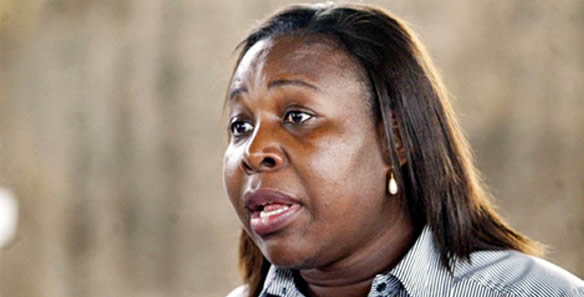Mozambique: President warns of threat from 'wave of disinformation'
Some judges behave like criminals, accuses former minister

O País / Former minister of Justice Benvinda Levi is currently an adviser to President Filipe Nyusi
Without naming any names, Mozambique’s former Justice Minister, Benvinda Levi, on Monday accused some of the country’s judges of behaving like criminals, reports the independent television station STV.
Speaking at the annual progress meeting of the Centre for Legal and Judicial Training (CFJJ), which she once headed, Levi did not mince her words. “Today, in some cases, when one talks about a magistrate, it’s almost like talking about a criminal. It’s almost synonymous”, she said.
“Credibility is called into question”, she continued, “because we are not using the mechanisms we have to filter the profession”.
Levi, who is currently an adviser to President Filipe Nyusi, said this “filtering” did not happen because the bodies that should regulate judges and prosecutors prefer to protect them. The bodies in question are the Higher Councils of the Judicial Magistracy and of the Public Prosecutor’s Office. Levi said that the “protection” these bodies offered to magistrates means that they override ethical norms.
“We have been excessively corporatist and we are protecting what should not be protected”, she accused. “We prefer to protect, and I don’t know if that’s because we are afraid to expose ourselves”.
Levi insisted that, if a judge or prosecutor, “does not meet requirements, or violates the norms, this person must be held responsible for the violation. That has to be clear”.
She was echoed by Adelino Laice, a national director in the Legal Aid Institute (IPAJ), who claimed “there are many magistrates with atypical approaches, which do not identify them as magistrates”. This was “corrupting and staining” the work done by training institutions such as the CFJJ.
The CFJJ is the only body set up specifically to train judges and prosecutors, but it is hindered by lack of staff, equipment and funds. The Centre’s current director, Elisa Samuel, warned that the shortage of money “is one of the major factors that undermines the full performance eof our activities”.
Levi said that, with the existence of the CFJJ, it made no sense for bodies such as the Supreme Court or the Attorney-General’s Office to have their own budget lines for training. That money, she believed, should all be channeled to the CFJJ.
Another former director of the Centre, retired Supreme Court judge Joao Carlos Trindade, went further, and denounced the multiplication of law faculties in higher education institutions scattered across the country. He regarded these faculties as worse than useless, and accused them of producing “ignoramuses with law degrees”.













Leave a Reply
Be the First to Comment!
You must be logged in to post a comment.
You must be logged in to post a comment.